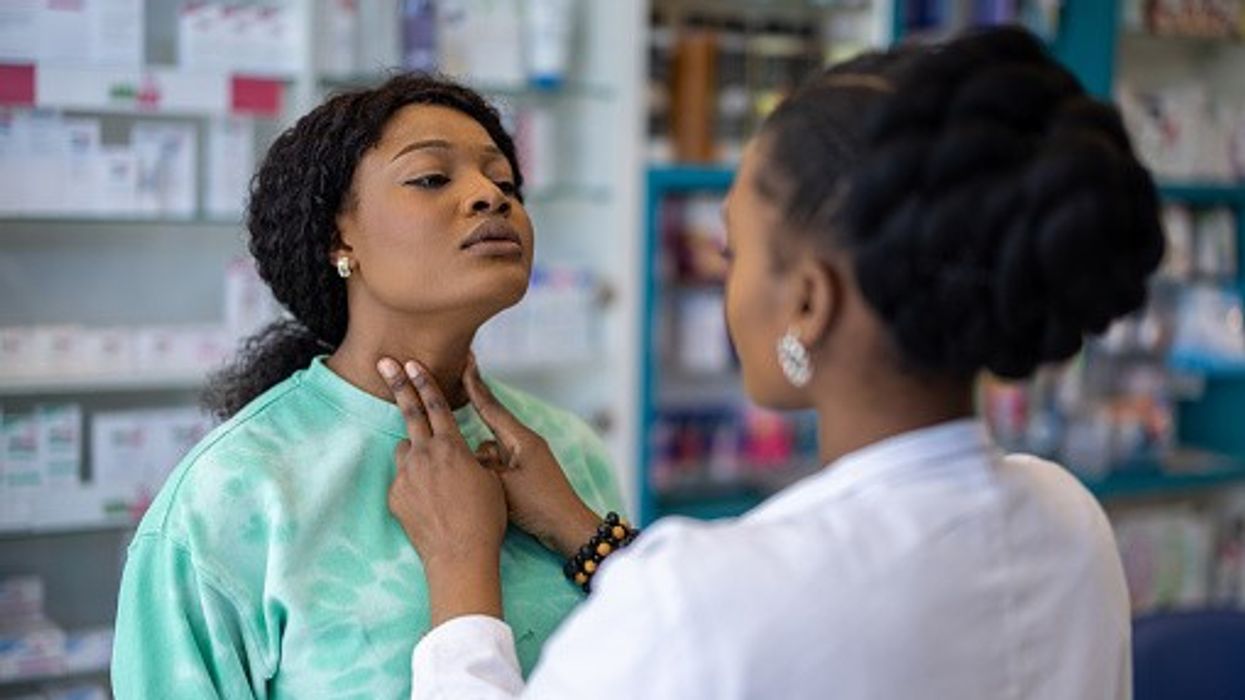A new study has highlighted significant differences in antibiotic use for sore throat treatment between pharmacies in England and Wales, suggesting that incorporating throat swabs to confirm bacterial infections could help reduce “unnecessary antibiotic supply.”
The study, published in the Journal of Antimicrobial Chemotherapy and first reported by The Independent, found that pharmacies in England were twice as likely to prescribe antibiotics for sore throats compared to those in Wales.
Researchers from the London School of Hygiene and Tropical Medicine (LSHTM) and Cardiff University analysed consultations under England’s Acute Sore Throat Pharmacy First (ASTPF) service and Wales’ Sore Throat Test and Treat (STTT) scheme.
Pharmacy First, introduced in England last year, allows community pharmacists to supply prescription-only medicines, including antibiotics and antivirals, without requiring a GP consultation.
Under ASTPF, patients are assessed using the FeverPain scoring system, with those scoring four or five potentially receiving antibiotics.
In contrast, the STTT scheme, implemented in Wales since 2018, enables pharmacists to prescribe antibiotics for FeverPain scores of two or three—but only if a throat swab confirms the presence of bacteria.
The analysis of the electronic pharmacy records from February to July 2024 found that the antibiotic supply rate was 72.7% under STPF, compared to just 29.9% under STTT.
Dr. Ayodeji Matuluko, the study's first author and a research fellow at LSHTM, emphasised the importance of ensuring the appropriate use of antibiotics to mitigate the potential public health threat posed by bacterial resistance.
Dr Rebecca Glover, assistant professor in antimicrobial resistance at LSHTM, suggested that the presence of a diagnostic test for patients in Wales could be a reason for the difference in antibiotic supply rates between the two nations.
However, she cautioned that introducing throat swabs may not be the answer for England, stating, “Diagnostic tests can add additional expense to an already-burdened healthcare system, and the tests themselves often vary in quality.”
Dr. Glover also noted that while the services in England and Wales share similarities, they are not directly comparable since the data were collected differently across the two nations.
She revealed that they will investigate the “uptake, antibiotic use, safety and impact of the English Pharmacy First service” as a whole in much greater detail, as part of a three-year evaluation commissioned by the National Institute for Health and Care Research.
UK is long way from containing AMR
Antimicrobial resistance (AMR) poses a significant global health threat, already contributing to an estimated 35,200 deaths annually in the UK.
Despite the government's recognition of AMR as one of 26 chronic national risks, resistant infections continue to rise.
A report by the National Audit Office (NAO), published in February, revealed that the UK remains "a long way" from achieving its vision of containing AMR.
Of the five domestic targets set in 2019, only one—reducing antibiotic use in food-producing animals—has been met, according to the report.
Notably, drug-resistant infections in humans have increased by 13% since 2018, despite a target to reduce them by 10%.
Gareth Davies, head of the NAO, recognised that addressing antimicrobial resistance is a “multifaceted challenge”.
“Government is responding but, so far, the results have been limited and the country needs to become more resilient to this long-term risk,” he said.
“Government needs to consider whether its existing commitments and other efforts across the public sector will be enough to achieve its 20-year vision to contain and control AMR."
The report also highlighted that the new AMR National Action Plan for 2024-2029 sets more achievable targets than its predecessor. However, it remains unclear whether meeting these targets will effectively reduce the burden of AMR in the UK.
Meanwhile, the British Society for Antimicrobial Chemotherapy (BSAC) has called on the government to invest in NHS infrastructure, which the report warns has “deteriorated in recent years” making it harder to keep buildings clean and isolate infectious patients.
BSAC also stressed the urgent need to establish an independent body to oversee implementation of the UK’s AMR National Action Plan, alongside the appointment of a dedicated minister responsible for AMR.
Furthermore, BSAC urged the government to invest in the infection workforce by prioritising education and improving diagnostics - key interventions that can reduce the overuse and misuse of antimicrobials, the primary drivers of AMR worldwide.













